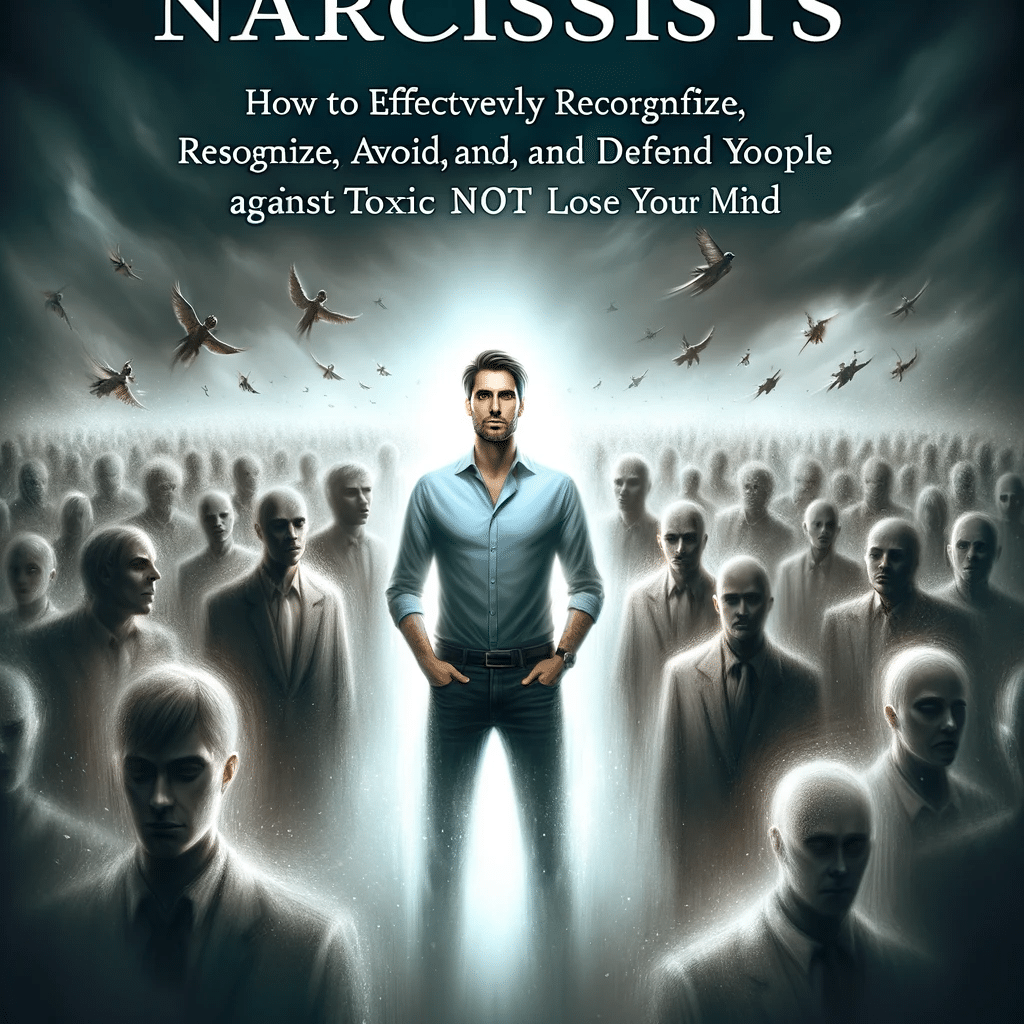
In an era saturated with advertisements and perpetual marketing messages, “All Marketers are Liars” emerges to unveil the other side of the marketing universe. This book isn’t just a hands-on guide to the craft of marketing; it’s a deep dive into the mechanics of how messages are conveyed to consumers.
Seth Godin, the author and one of the foremost figures in the marketing world, offers a fresh perspective on how marketing truly operates. He posits that successful marketers are, at their core, storytellers. But what are these stories? And why are they believed? Matters are not as straightforward as they seem. Marketers construct narratives that align with consumers’ viewpoints and expectations, delivering them in ways that consumers want to believe in.
The book doesn’t merely present the techniques employed by marketers. It also touches on the pitfalls they might stumble upon, with the most significant being a deviation from authenticity and truth. In today’s times, authenticity holds a particular value in the world of marketing, a sentiment that Godin underscores throughout his book.
“All Marketers are Liars” is an invitation to understand marketing from a renewed lens. It equips readers with the tools needed to dissect the marketing messages presented to them daily. So, if you’re keen on comprehending the marketing world more profoundly, this book is your gateway.
إقرأ أيضا:The Intelligence Trap: Mastering Smart Decisions in a Complex WorldHow Does Storytelling Transform Modern Marketing?
In Seth Godin’s groundbreaking book, “All Marketers are Liars: The Underground Classic That Explains How Marketing Really Works–and Why Authenticity Is the Best Marketing of All”, one of the central themes that emerges is the role of storytelling in marketing. Gone are the days when mere product promotion was sufficient. In today’s digital age, where consumers are inundated with advertisements from every corner, a simple promotional message can easily get lost in the noise. But a compelling story? That sticks. That resonates. That has the power to not only capture attention but also to change perceptions and influence purchasing decisions.
So, what exactly does Godin mean by storytelling in marketing? It’s not about concocting a fictitious tale, but rather about weaving a narrative that connects the product or service to the consumer’s life, aspirations, and emotions. It’s about presenting the product in a context that aligns with the consumer’s worldview and makes them feel seen, understood, and catered to. This narrative-driven approach brings a human touch to marketing, bridging the gap between brands and consumers.
But why is storytelling so powerful? Humans are naturally wired to respond to stories. From ancient campfires to modern Netflix binges, stories have always been our preferred medium of information and entertainment. By tapping into this innate human trait, marketers can foster deeper connections and loyalty. A good story doesn’t just sell a product; it sells an experience, a vision, a dream.
Furthermore, in a world of rising skepticism towards advertisements, authentic storytelling stands out as genuine and relatable. When consumers sense sincerity and honesty in a brand’s narrative, their trust is strengthened. And trust, in the long run, translates to brand loyalty and advocacy.
To sum it up, “All Marketers are Liars” doesn’t imply deception but highlights the potent power of genuine storytelling in marketing. As brands vie for attention in an increasingly crowded marketplace, it’s the ones that tell memorable, truthful stories that stand out and leave a lasting impact.
Business & Finance Management – Book Summary (khkitab.com)
How Do Consumer Worldviews Shape Their Purchasing Choices?
Delving into Seth Godin’s influential book “All Marketers are Liars: The Underground Classic That Explains How Marketing Really Works–and Why Authenticity Is the Best Marketing of All”, it’s evident that consumer behaviors aren’t just driven by the allure of products or the appeal of prices. Rather, the psychological factors and deeply-held beliefs – termed as ‘worldviews’ by Godin – play a pivotal role in shaping purchasing choices.
Consumer worldviews can be likened to a set of glasses through which individuals see the world. These glasses are tinted with personal experiences, cultural backgrounds, societal values, and more. Every person’s worldview is unique, creating a subjective reality that affects how they perceive advertising messages, brands, and products. When a marketing message aligns seamlessly with a consumer’s worldview, it resonates more deeply, leading to a stronger connection and greater potential for conversion.
For instance, a person with a strong environmental worldview is more likely to be drawn to products that are sustainable, ethically sourced, and environmentally friendly. They will respond positively to marketing messages that highlight these attributes. On the other hand, a marketing message promoting luxury and exclusivity might resonate with someone who values status and recognition in society.
Godin’s emphasis on worldviews underscores the importance of understanding and respecting the target audience’s beliefs and perspectives. Instead of trying to change these beliefs, successful marketers craft their stories to fit into the existing narratives of their audience. It’s not about fabricating tales but about presenting a story that aligns authentically with the audience’s values, aspirations, and perspectives.
In conclusion, “All Marketers are Liars” offers a deep dive into the intricacies of consumer psychology, illustrating the immense influence of worldviews on purchasing decisions. For brands looking to build lasting connections, understanding and tapping into these worldviews is not just beneficial—it’s essential. By aligning their marketing narratives with consumer worldviews, brands can create messages that are both compelling and deeply resonant, leading to long-term loyalty and trust.
Our Facebook Page – Book Summary
Why is Authenticity the Cornerstone of Effective Marketing?
In the ever-evolving landscape of marketing, certain principles have remained steadfast, and one of them is the concept of authenticity, a theme Seth Godin heavily emphasizes in his seminal work “All Marketers are Liars: The Underground Classic That Explains How Marketing Really Works–and Why Authenticity Is the Best Marketing of All”. But what does it genuinely mean to be authentic in marketing, and why is it so crucial?
Authenticity in marketing goes beyond merely speaking the truth about a product or service. It’s about conveying a message that is genuine, relatable, and uncontrived. Consumers today are inundated with countless advertising messages daily, making them more discerning and skeptical. They seek brands that resonate with their values, beliefs, and experiences. When a brand’s story aligns seamlessly with a consumer’s worldview without any facade, it paves the way for a deeper connection, trust, and loyalty.
Furthermore, the rise of social media platforms has enabled consumers to peer behind the curtains of companies, making transparency not just an option but a necessity. Brands can no longer hide behind glossy ads; they must walk the talk. Genuine stories, testimonials, and user-generated content, which echo authenticity, have become more impactful than traditional advertising messages.
Moreover, authenticity establishes a brand’s credibility in the market. When consumers sense a brand is genuine in its messaging and actions, they’re more likely to advocate for it, becoming ambassadors who further amplify the brand’s message.
Godin’s “All Marketers are Liars” underscores the idea that authenticity isn’t a mere marketing tactic but a foundational strategy. It’s not about creating the perfect image but about showcasing the real, raw, and relatable facets of a brand. In essence, genuine stories don’t just sell; they create advocates, foster trust, and build lasting relationships.
In today’s market, where competition is fierce and consumer trust is fragile, the power of authenticity can’t be overstated. It’s not just about being true to the consumer but also being true to the brand itself. And as Godin rightly points out, when truth and authenticity become the core of a brand’s messaging, it transforms from mere marketing to a powerful movement.
Why is Product Remarkability the First Step in Effective Marketing?
In “All Marketers are Liars: The Underground Classic That Explains How Marketing Really Works–and Why Authenticity Is the Best Marketing of All,” Seth Godin delves into the concept that marketing isn’t solely about the act of selling or promoting. One of the foundational ideas of the book is that marketing starts way before any advertisement or sales pitch: it begins with the product itself.
The digital age has empowered consumers. With endless options at their fingertips and the power to research in real-time, they are more discerning than ever. Godin emphasizes that in such a saturated marketplace, the only products that truly stand out are those that are remarkable. And what does it mean for a product to be remarkable? It’s a product that people not only want to buy but also talk about. It’s a product that challenges the status quo, offers something unique, or solves a problem in a novel way.
This philosophy shifts the perspective from traditional marketing tactics to product innovation. Rather than investing heavily in trying to create a narrative that makes a mundane product seem extraordinary, the focus should be on creating genuinely extraordinary products. Once that’s achieved, the product essentially markets itself. People share their experiences, leave reviews, make recommendations, and become brand ambassadors.
Moreover, the advent of social media has amplified the voice of the consumer. A remarkable product can go viral in hours, receiving millions of organic exposures without a cent spent on advertising. Conversely, a mediocre product can be lambasted just as quickly.
Godin’s argument isn’t to abandon marketing strategies but to reframe them. The marketing process begins at the product’s inception – during brainstorming, design, and development. Every choice made during these stages determines the product’s marketability.
In conclusion, “All Marketers are Liars” challenges businesses to think differently. Instead of crafting stories around average products, the emphasis should be on creating products that inherently carry a compelling story. In today’s market, the truly remarkable products not only capture attention but also hearts and minds.
How Do Marketers Align Stories with Consumer Expectations for Effective Marketing?
In “All Marketers are Liars: The Underground Classic That Explains How Marketing Really Works–and Why Authenticity Is the Best Marketing of All,” Seth Godin offers an illuminating perspective on the nature of marketing in today’s age. It’s not just about telling a story; it’s about aligning that story with the deeply held beliefs and expectations of consumers.
At the heart of Godin’s argument is the idea that consumers, more often than not, buy into stories that confirm their pre-existing worldviews. In a crowded marketplace, where consumers are bombarded with countless messages daily, only those narratives that resonate on a personal, emotional level truly stand out. It’s not necessarily about the reality of the product or service but how that reality is perceived and framed.
To truly connect, marketers need to craft tales that aren’t just authentic but also sync with what consumers already believe. This doesn’t mean manipulating the truth, but rather presenting it in a way that aligns with consumer expectations. For instance, if consumers believe in the power of natural ingredients, a brand emphasizing its all-natural products will resonate more. If there’s a prevailing belief in the benefits of technology, then showcasing tech-forward features becomes the narrative.
But, Godin warns, it’s not just about aligning with these beliefs; it’s about genuine authenticity. In the age of digital media where information is easily accessible, consumers can quickly detect and dismiss inauthentic stories. Thus, while alignment draws them in, authenticity keeps them engaged and turns them into brand advocates.
The book underscores that for modern marketing to be effective, it should be seen less as a process of convincing and more as one of connection. In connecting with consumers on deeply held beliefs and values, brands can create lasting relationships, ensuring not just a single purchase but ongoing loyalty.
In conclusion, “All Marketers are Liars” provides invaluable insights for anyone looking to navigate the intricate dance between consumer beliefs and marketing narratives. By understanding and harnessing this dynamic, businesses can craft stories that not only sell but also forge lasting bonds with their audience.
What are the Consequences of Dishonest Marketing in Today’s Digital Age?
In the pivotal work, All Marketers are Liars: The Underground Classic That Explains How Marketing Really Works–and Why Authenticity Is the Best Marketing of All, Seth Godin delves deeply into the world of marketing, highlighting the indispensable role of authenticity. A particular area he focuses on is the potential fallout from dishonest marketing strategies.
1. Damaged Reputation: At the heart of modern marketing is trust. Once a brand’s integrity is compromised due to false advertising or misleading narratives, it becomes immensely challenging to rebuild that trust. In the age of social media, news about dishonest practices can spread like wildfire, leading to significant brand erosion.
2. Legal Repercussions: False claims, especially those related to product efficacy or safety, can land companies in legal trouble. This not only involves hefty fines but also the costly process of recalling products and running corrective advertising campaigns.
3. Lost Customer Loyalty: Loyalty is a prized asset in the marketing world. A brand built on deceptive stories or promises will struggle to retain customers. Once the falsehood is exposed, consumers will more likely switch to competitors who are perceived as more genuine.
4. Negative Word of Mouth: Today’s consumers are well-connected and informed. Negative experiences stemming from deceptive marketing tactics are quickly shared on online platforms, forums, and social media, amplifying the negative sentiment around the brand.
5. Financial Setbacks: Refunds, legal battles, and crisis management campaigns can be costly. Plus, the potential drop in sales due to lost trust can have a long-term adverse impact on a company’s bottom line.
Godin’s emphasis on authenticity in All Marketers are Liars is not merely an ethical call to action but a strategic one. Authenticity resonates with consumers and builds lasting brand loyalty, whereas dishonesty can lead to short-term gains but long-term failures. In an era where consumers value transparency and genuine engagement, brands must prioritize honesty in their narratives and promises. Anything less is not just ethically questionable but also business-averse in the long run.
How Does Emotion Drive Consumer Decisions in Marketing Strategies?
In the insightful book “All Marketers are Liars: The Underground Classic That Explains How Marketing Really Works–and Why Authenticity Is the Best Marketing of All,” by Seth Godin, a profound exploration of the role of emotion in consumer decision-making is conducted. Godin elucidates that emotional connection is a pivotal aspect that often precedes rational justification when consumers are making choices.
Firstly, Godin accentuates that emotions act as a powerful catalyst in initiating customer interactions with a product or brand. Consumers are invariably drawn towards stories and narratives that resonate with their feelings and experiences, which shapes their perceptions and attitudes towards the product. Products and brands that succeed in establishing an emotional rapport with customers find themselves in a vantage position where the customers feel a sense of belonging and affinity towards the brand, making them more receptive to the marketing messages conveyed.
Additionally, the book underscores the significance of storytelling in marketing, where stories infused with emotions are more likely to captivate consumers’ attention. Storytelling that evokes emotions crafts memorable experiences, fostering a deep-rooted connection between the consumer and the brand. This kind of emotional storytelling facilitates the creation of a brand image that resonates with authenticity and relatability, essential ingredients in building consumer trust and loyalty.
Moreover, Godin discusses the consumer’s journey from emotion-driven curiosity to rational justification. Consumers, after being emotionally captivated, tend to seek rational reasons to justify their initial emotional inclinations towards a product or service. This is where marketers need to ensure that the emotional allure is complemented with solid, rational reasons that reinforce the consumer’s choice, making the decision feel well-rounded and justified.
In conclusion, “All Marketers are Liars” emphasizes the symbiotic relationship between emotion and rationality in the consumer decision-making process. Marketers aiming for success should endeavor to strike a harmonious balance between engaging consumers emotionally and providing substantial rational justifications for choosing their products or services. Godin’s insights underscore the imperative of weaving emotional narratives that not only resonate with consumers on a human level but also align seamlessly with the authentic values and promises of the brand, thus ensuring a marketing strategy that is both compelling and credible.
How Do Compelling Stories Act as Viral Marketing Tools in “All Marketers are Liars”?
In Seth Godin’s “All Marketers are Liars: The Underground Classic That Explains How Marketing Really Works–and Why Authenticity Is the Best Marketing of All,” a central theme emerges around the power of storytelling in marketing. Godin delves deep into how compelling stories, when believed and embraced by their target audience, can turn into viral phenomena, effectively acting as unpaid marketing campaigns.
One of the foundational arguments presented is that consumers are not just buying products or services; they are often buying stories that align with their own worldview or desires. When a story resonates, it’s because it fills a gap or satisfies a need within the consumer’s own narrative.
Viral spread is not just about the number of shares or likes a story gets. It’s about the depth of engagement and the emotional connection it establishes. Godin argues that the most effective stories are those that are authentic and genuine. In an age where consumers are bombarded with marketing messages, authenticity cuts through the noise. When consumers believe in a story, they don’t just pass it on; they endorse it, adding their own credibility to the narrative.
Moreover, the book underlines the principle of the “tipping point” in the context of stories. A story, no matter how compelling, needs initial amplifiers or early adopters. These are individuals or groups who first embrace the story, giving it the initial momentum. Once a story reaches its tipping point, it spreads like wildfire, often with minimal input from the original storyteller.
However, a crucial takeaway is the responsibility that comes with storytelling. As stories have the power to influence and spread, ensuring they are based on truth and genuine value becomes paramount. Misleading stories might get short-term traction, but in the long run, they erode trust and can backfire.
In conclusion, “All Marketers are Liars” provides a compelling argument for the role of authentic storytelling in marketing. By understanding the mechanics of how stories spread and resonate, marketers can craft narratives that not only sell but also build lasting relationships with their audience.
How Can Authentic Storytelling Differentiate Brands in Crowded Markets? Insights from “All Marketers are Liars”
In today’s ever-evolving market landscape, differentiation is paramount. Seth Godin’s “All Marketers are Liars: The Underground Classic That Explains How Marketing Really Works–and Why Authenticity Is the Best Marketing of All” delves deep into this concept, emphasizing the unparalleled power of authentic storytelling as a tool to carve out a unique brand space in saturated markets.
- The Power of Perception: At its core, Godin’s book underscores the idea that marketing is not about facts but about the stories consumers choose to believe. In crowded markets, every brand clamors to be heard, but only those that resonate with consumers on a personal, emotional level truly break through. It’s not about the objective superiority of a product, but the perceived value that the story adds.
- Authenticity as a Differentiator: With countless options available, consumers are increasingly cynical of polished marketing pitches. Authenticity, as Godin posits, cuts through the noise. Brands that are genuine in their storytelling, that align with their core values, and that showcase their unique journey, are more likely to foster trust and loyalty.
- Stories that Resonate: It’s not enough to just tell a story. It must resonate. The narratives that stick are those that align with existing worldviews, challenge the status quo, or offer a fresh perspective. They aren’t just stories about what a product does, but about how it fits into the consumer’s life, fulfilling desires or solving problems.
- The Viral Effect: A compelling story does more than just convince a consumer to buy. It turns them into advocates. As Godin points out, when a story aligns so well with a consumer’s worldview that they’re compelled to share it, it amplifies the marketing effort manifold. This word-of-mouth, organic spread is invaluable, especially in a crowded market.
In conclusion, “All Marketers are Liars” serves as a profound reminder that in the face of intense market competition, it’s not just about being better; it’s about being different, being genuine, and connecting on a deeper level. In a world inundated with choices, the brands that thrive will be those that tell authentic stories, not just about their products, but about their ethos, their journey, and their vision. It’s this authenticity that will be the beacon, drawing consumers in and setting brands apart in the bustling marketplace.
How Do Stories in Marketing Evolve Over Time? Insights from “All Marketers are Liars”
In the intricate fabric of modern marketing, stories are the threads that weave brands into the consciousness of consumers. Seth Godin’s seminal work, “All Marketers are Liars: The Underground Classic That Explains How Marketing Really Works–and Why Authenticity Is the Best Marketing of All,” underscores the power and the pitfalls of storytelling in the business landscape. One of the most critical themes he touches upon is the lifecycle of these stories. So, how should businesses know when to adapt, evolve, or abandon a narrative? Let’s delve deeper into this.
- Birth of a Story: Every narrative starts as a unique proposition, crafted to resonate with a specific audience. This initial phase requires intense market research, understanding customer pain points, and aligning the brand’s core values with the audience’s worldview.
- Market Saturation & Evolution: As competitors catch on and the market saturates with similar tales, the power of the original story may wane. It’s at this juncture that brands must be attuned to shifts in consumer sentiment and reinvigorate their narrative to keep it fresh and relevant.
- Cultural Shifts & Story Adaptation: Societal events, technological advances, and global phenomena can dramatically change consumer worldviews. Brands that rigidly stick to their old tales risk becoming obsolete. On the flip side, those that nimbly adapt their stories in response to these shifts not only survive but thrive.
- Decline & The Decision Point: Even the most potent narratives can lose their sheen over time. When engagement metrics dip consistently, and the story no longer resonates, it’s a sign for brands to introspect. The decision isn’t easy: Should they rehash and refresh the story or let go and craft a new one? The answer lies in consumer feedback, market trends, and sometimes, gut instinct.
- The Authenticity Factor: Central to Godin’s argument in “All Marketers are Liars” is authenticity. As stories evolve or change, the core truth of the brand should remain consistent. Authenticity isn’t just a buzzword; it’s the anchor that ensures consumers remain loyal, even when the narrative shifts.
In essence, stories in marketing are living entities. They breathe, grow, evolve, and sometimes fade away, making way for new tales. Brands that recognize and respect this lifecycle, continuously optimizing their narratives in tandem with market dynamics and consumer preferences, position themselves for enduring success.








